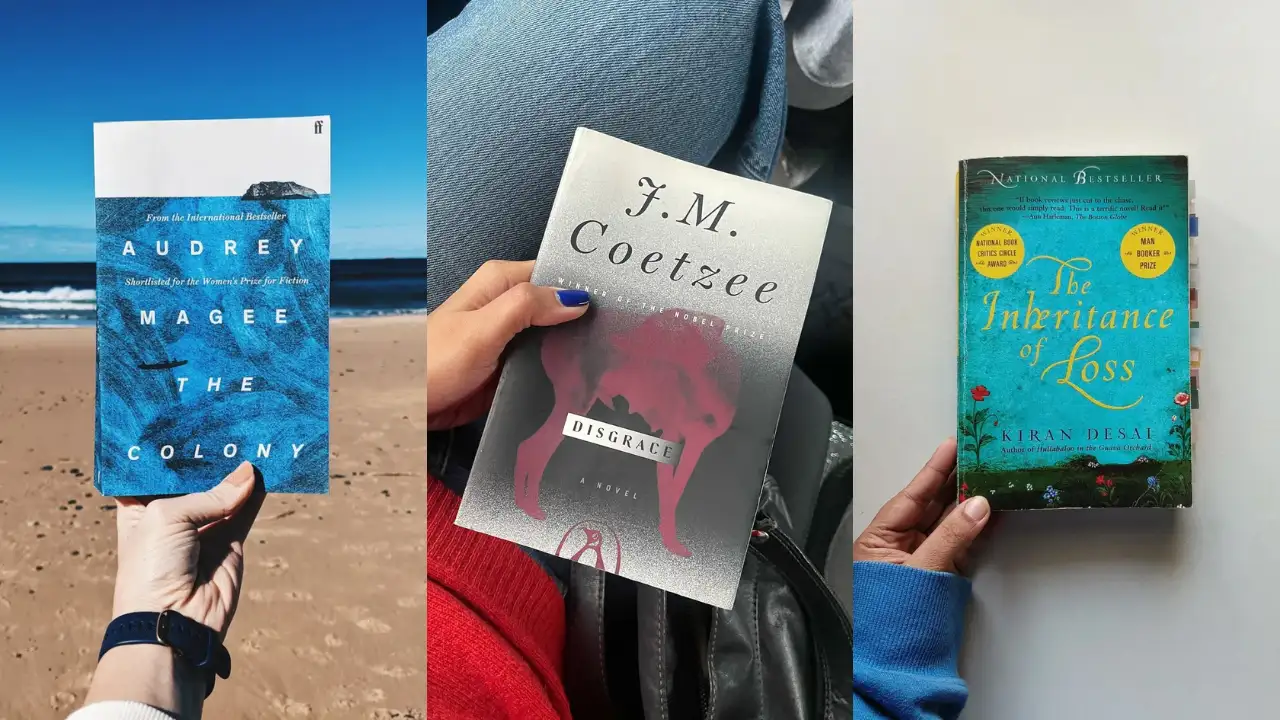By Girish Shukla
Copyright timesnownews

There’s something magical about lying in bed at 2 AM, staring at the ceiling while your brain replays scenes from a book you read months ago. You know the feeling. That moment when sleep feels impossible because your mind is too busy wrestling with questions you never thought to ask before. Some books do more than entertain us. They rewire how we see the world, leaving us with thoughts that bubble up during quiet moments, demanding attention when we least expect it. The books on this list aren’t just good reads. They’re mind changers. They’re the stories and ideas that stick to your thoughts like shadows, showing up in your sleepless hours to make you question everything you thought you knew about life, love, death, and what it means to be human. These are the books that transform casual readers into midnight philosophers, turning restless nights into accidental therapy sessions with yourself. Also Read: 10 Books So Good, I Felt Like I Was Wasting Time Reading Anything Else 1. The Book of Night Women by Marlon James A harsh story set on a Jamaican sugar plantation in the late 1700s, following Lilith, a young enslaved woman born into terrible cruelty. When she learns she is part of a secret group of strong women planning a dangerous rebellion, her life changes. The story moves through violence, sisterhood, and survival as these women face the horrors of plantation life. Marlon James builds a dark but powerful story that shows human strength and the high cost of freedom in a system made to break the soul. 2. Song of Solomon by Toni Morrison Milkman Dead grows up cut off from his family’s history and his own identity in a Michigan town. His journey begins when he discovers a mysterious family story involving flight, gold, and long-buried secrets. As he travels south looking for hidden treasure, he uncovers the truth about his great-grandfather’s supernatural powers and his family’s ties to African folklore. Morrison tells a tale where real life mixes with myth, exploring identity, heritage, and the power of stories across generations of an African American family. 3. Disgrace by J.M. Coetzee David Lurie, a disgraced university professor in post-apartheid South Africa, loses everything after an affair with a student. He goes to his daughter Lucy’s rural farm, hoping to start over in peace. But when violent attackers assault them both, leaving Lucy pregnant and David beaten, their lives fall apart. The aftermath makes both father and daughter face hard truths about power, race, and survival. Coetzee shows how personal disgrace reflects a nation’s struggle with its own painful past and uncertain future. 4. The Inheritance of Loss by Kiran Desai High in the Himalayas, a retired judge lives with his orphaned granddaughter, Sai and his cook in a broken-down house full of bitterness and memories. While Sai falls in love with her Nepali tutor, the cook dreams of his son Biju, who struggles as an illegal worker in New York’s restaurants. As political unrest spreads through their mountain town, these linked lives reveal the lasting effects of colonialism and globalisation. Kiran Desai ties together stories of love, loss, and displacement across continents, showing how history shapes personal destiny. 5. The Bone People by Keri Hulme Kerewin Holmes lives alone in her tower by the New Zealand sea, a withdrawn artist who has cut herself off from family and community. Her solitude ends when she meets Sim, a mute Maori child, and his foster father Joe, both carrying deep emotional pain. As the three form an unlikely bond, hidden truths about abuse and abandonment come out, threatening their fragile connection. Set against Maori culture and New Zealand’s wild coast, Hulme explores healing, spiritual ties, and the chance of building new families from broken lives. 6. The Kindly Ones by Jonathan Littell SS officer Max Aue narrates his story during World War II, describing his role in the Holocaust and the Eastern Front with cold detail. As he moves through different jobs, from mass killings to office work, he keeps a strangely calm view of the horrors around him. The story follows his mental breakdown as he tries to justify his part in genocide. Jonathan Littell gives a disturbing look at evil from the side of the criminal, making readers face the emptiness of systematic murder and the human ability to ignore morality. 7. The Colony by Audrey Magee On a remote Irish island in 1979, two Englishmen arrive for different reasons during The Troubles. Lloyd comes to study rare birds, while Masson wants artistic inspiration from painting the tough landscape. The islanders, struggling with poverty and thinking of leaving their old home, view these outsiders with both hope and distrust. As tensions grow between visitors and locals, the delicate balance of both human and animal life faces danger. Audrey Magee looks at colonialism, cultural destruction, and the uneasy bond between observer and observed. 8. Outline by Rachel Cusk A writer travels to Athens to teach a summer class, having a series of talks with strangers and acquaintances during her trip. From a passenger on the plane who shares his marriage problems to her students who reveal personal stories, each meeting builds a quiet picture of human life. The narrator mostly stays silent, serving as a listener while others confess fears, desires, and regrets. Rachel Cusk creates a unique style where the main character’s story is told through absence, exploring identity, divorce, and the tales people tell themselves. 9. Austerlitz by W.G. Sebald A man slowly learns about his forgotten childhood as a Jewish refugee sent to Wales before World War II, after living for years without knowing his real identity. Through talks with the narrator in train stations and cafes, Austerlitz pieces together fragments of memory and history about his parents’ fate in Nazi-occupied Prague. His search takes him through archives, old buildings, and concentration camps as he rebuilds a past buried by trauma. W.G. Sebald mixes history and memory in a haunting story about loss, exile, and the burden of inherited suffering. 10. The Infatuations by Javier Marías María Dolz becomes fascinated with a couple she sees every morning at her café, imagining stories about their happy marriage. When the husband is murdered in a random attack, her interest grows as she befriends the widow and learns unsettling truths about their life. The more she enters their world, the more she discovers about the complicated nature of love, jealousy, and the stories people invent about others. Javier Marías explores how obsession can turn dangerous when imagination and reality collide in modern Madrid. As you close your eyes tonight, don’t be surprised if one of these books finds its way into your thoughts. That restless feeling isn’t insomnia. Its growth. It’s your mind expanding to hold bigger ideas, deeper questions, and more complex truths about the world around you. Also Read: 12 Riveting Books to Keep You Up Past Bedtime The books that keep us awake at night are gifts disguised as sleep thieves. They remind us that some thoughts are worth losing sleep over, that some questions matter more than easy answers, and that the best books don’t just fill our time. They change our time, making every quiet moment an opportunity to think deeper, feel more, and understand better. So the next time you find yourself wide awake at 3 AM with a book’s wisdom swirling through your head, don’t fight it. Embrace it. You’re not just losing sleep. You’re finding yourself, one sleepless thought at a time. After all, the books that disturb our rest are often the ones that help us live more fully when we’re awake.



